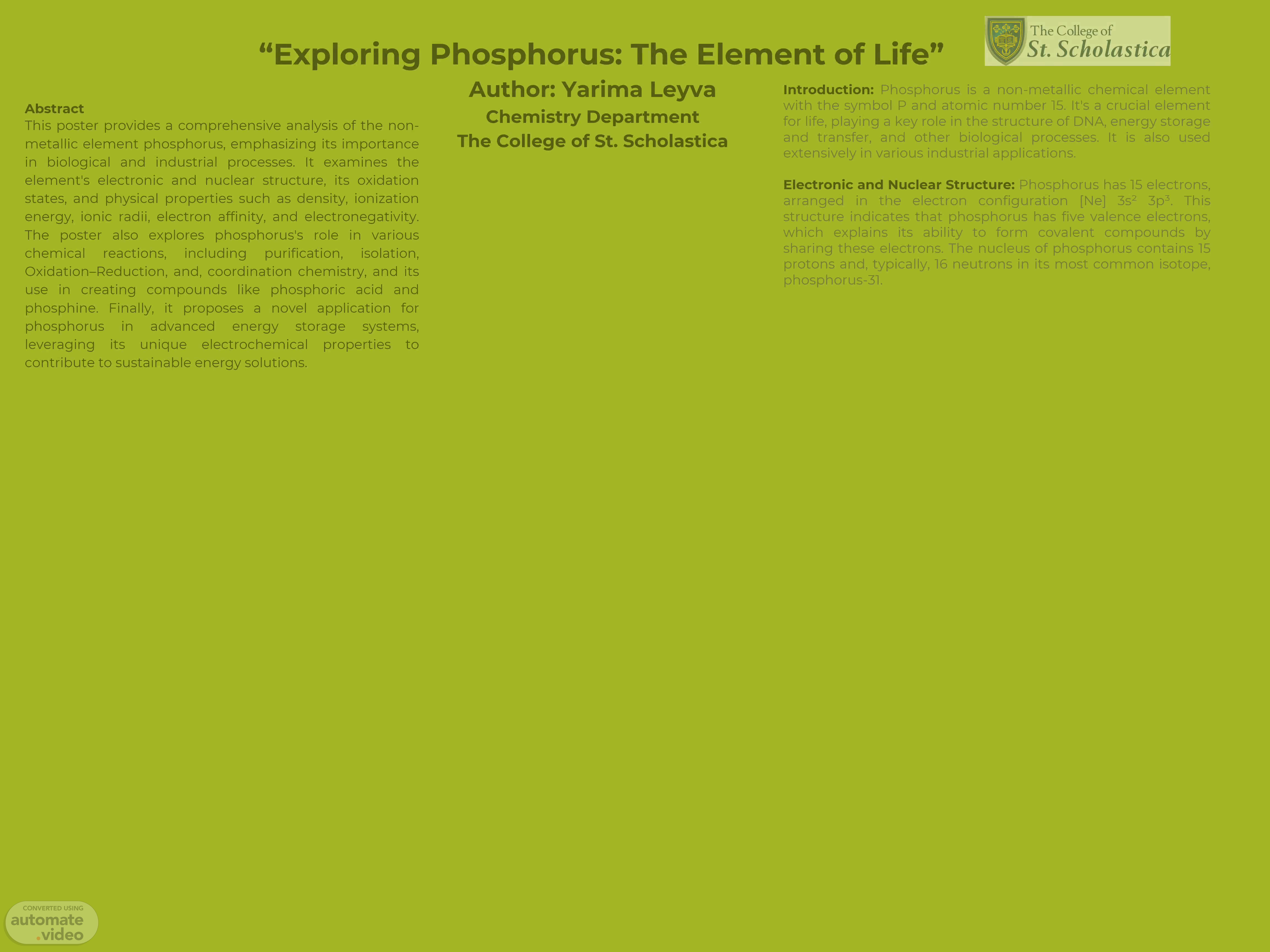
PowerPoint Presentation
Scene 1 (0s)
[Audio] -31. Oxidation States and Physical Properties: Phosphorus can have different oxidation states. These are determined by the number of electrons gained or lost from the element's original electron configuration. Additionally, phosphorus's properties, such as its density, ionization energy, ionic radii, electron affinity, and electronegativity all contribute to its many unique uses. Chemical Reactions and Potential Applications: Phosphorus is involved in many chemical reactions, such as purification, Isolation, Oxidation–Reduction, and coordination chemistry. Its ability to form phosphoric acid and phosphine derivatives is also useful in industrial applications. Furthermore, phosphorus's electrochemical properties are being explored to create advanced energy storage systems, to contribute to sustainable energy solutions. In conclusion, phosphorus is a crucial element not only for life but also for many industrial processes. Its unique electronic and nuclear structure, oxidation states, and physical and electrochemical properties lead to various chemical reactions and potential applications..